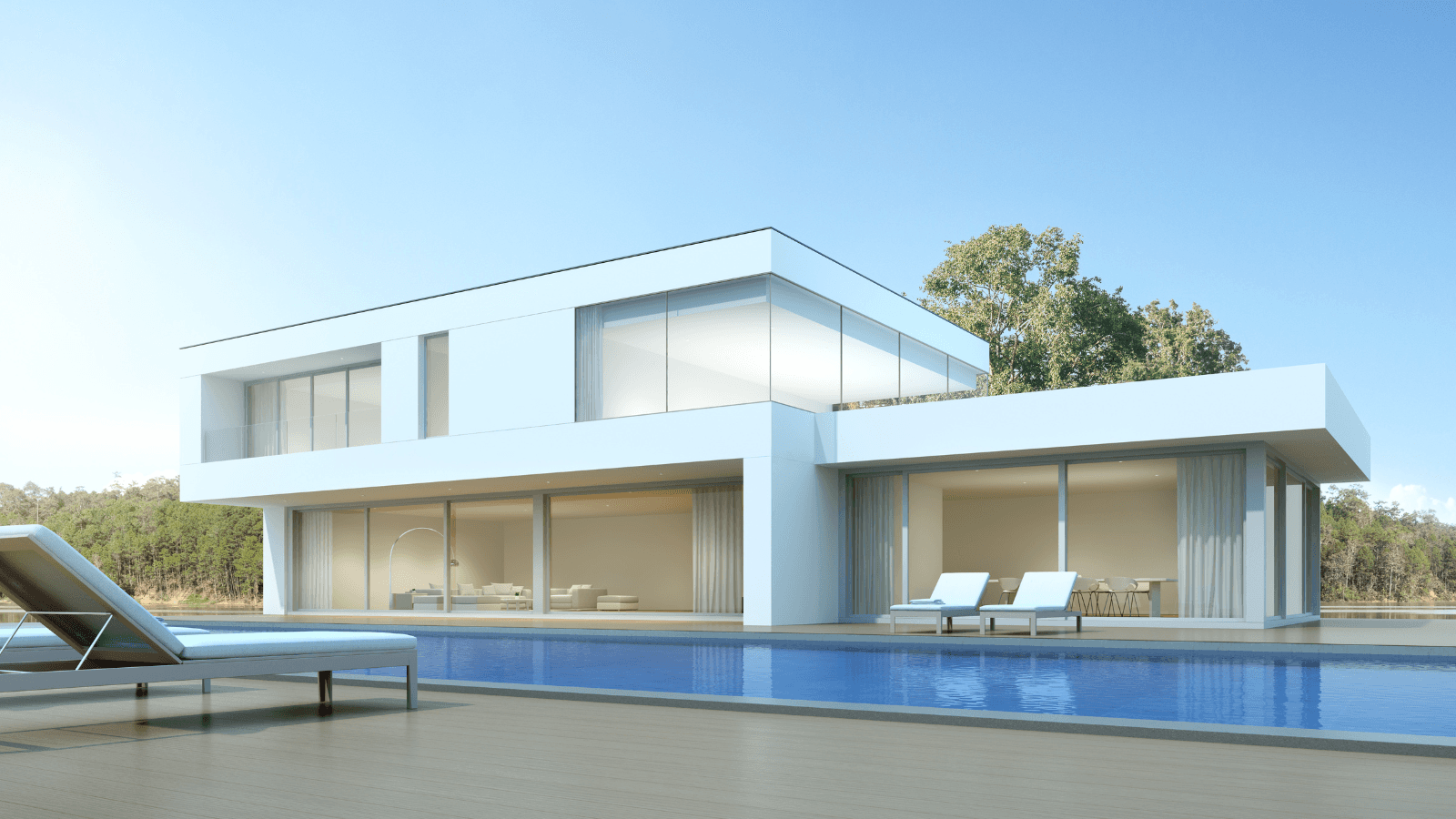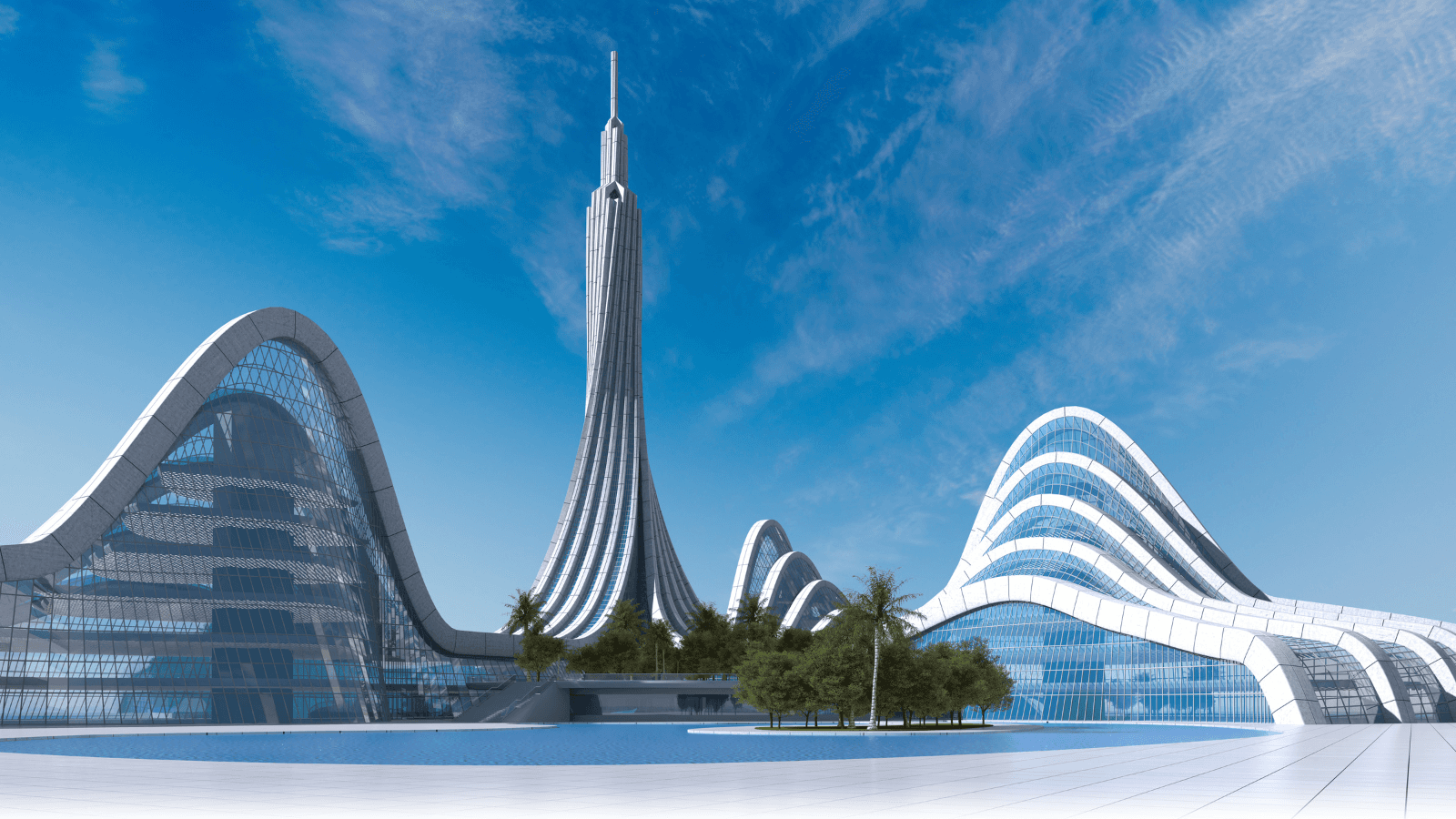العودة إلى المدونة
The GCC's Real Estate Ventures in the Metaverse
13/11/2023
Callum Moates
The Gulf Cooperation Council (GCC) countries, including Saudi Arabia, the UAE, Qatar, Bahrain, Kuwait, and Oman, are witnessing a shift in their real estate sectors, primarily driven by integrating metaverse and 3D internet tech. Major real estate companies, government organizations, and tech companies are betting on the metaverse, with investments, partnerships, and incubator programs fueling the growth of metaverse real estate projects.
The 3D internet allows users to represent themselves as avatars and virtually build a community by buying, developing, and residing in digital real estate properties. These properties also offer utility to users by creating spaces for entertainment, collaboration, business, and education, among others. As the GCC region stands on the brink of a tech revolution, companies that adopt and harness the potential of the 3D internet will benefit by providing residents with better experiences, encouraging virtual tourism, and supporting businesses to flourish.
The metaverse real estate boom
The virtual real estate market, comprising virtual land, buildings, and other digital assets, is accelerating, with the GCC economies taking center stage. The allure of these digital parcels of land is derived from the potential benefits of offering a space for creativity, building social connections, and the financial upside. Platforms like Decentraland, Cryptovoxels, and Somnium Space are some of the many spaces that allow individuals to purchase virtual real estate, build on it, and monetize it. These virtual landpieces can also be bought and developed through platforms like Landvault.
Similar to the real-world real estate market, the virtual real estate market is also influenced by supply and demand. Factors such as the availability of virtual lands, the development of unique virtual experiences, and the scarcity of desirable virtual locations all play a role in determining the prices of virtual properties. A limited number of digital land plots in the metaverse and increasing demand increase prices and the asset's value, presenting several investment opportunities.
In the virtual world, user engagement is also a pivotal factor influencing the value of virtual lands and properties. Just as a robust economy encourages real-world investors, a vibrant and active user base contributes to appreciating virtual properties. Higher user engagement can lead to increased demand and higher virtual property prices.
The metaverse also offers unique business and event opportunities within the digital space. Businesses are flocking to the metaverse to reach new customers through virtual storefronts and exhibitions. These activations help businesses build relationships with users and convert them into customers. For instance, PwC aims to set up a web3 advisory hub on a plot of land it owns in The Sandbox, while companies like Warner Music Group are working to develop a virtual concert venue.

Metaverse development in GCC countries
The GCC countries are swiftly emerging as frontrunners in the metaverse world. Strategy& Middle East projects that by 2030, the metaverse could infuse $15 billion into the GCC economies. The leading metaverse economies in the region include Saudi Arabia, which would contribute $7.6 billion, while the UAE would bring in $3.3 billion. In the UAE, Dubai’s metaverse strategy launched in 2022 promises to create over 40,000 jobs in the next five years. This rapid adoption of the metaverse in the region is fueled by its tech-savvy youth, high smartphone and internet penetration rates, and a knack for investing in new technology.
Several metaverse projects with ambitious initiatives and collaborations have been launched in the region, particularly those centered around virtual real estate. Here are some leading virtual real estate projects and partnerships in the region:
NEOM: The NEOM project in Saudia Arabia has a digital subsidiary that has invested $1 billion in the metaverse and artificial intelligence (AI) applications to build a digital twin of its city project, The Line. The virtual city will allow individuals to digitally visit the place before investing and help in the development's design and construction. The metaverse project is being rolled out with companies such as Hong Kong-based Animoca Brands, a company in the blockchain space working towards digital property rights for the open metaverse.
2117 Metaverse Project: Inspired by Sheikh Mohammed bin Rashid's vision to build a colony on Mars, this project launched by BEDU features virtual real estate opportunities. The virtual colony aims to host a range of facilities, including residential buildings, hotels, schools, universities, healthcare centers, and entertainment hubs. BEDU will build the project along with data from the MBRSC (Mohammed Bin Rashid Space Centre) to make the space as realistic as possible.
Yas Island Metaverse: A collaboration of six companies (Department of Culture and Tourism Abu Dhabi (DCT Abu Dhabi), Aldar, Miral, twofour54, and Ethara) aims to bring Abu Dhabi's Yas Island into the metaverse. This initiative will recreate the entire physical destination of Yas Island on immersive 3D platforms, offering visitors a comprehensive metaverse experience. The virtual replica will allow visitors to build or purchase digital homes, attend events, visit landmark attractions, immerse themselves in a virtual theme park, and visit a motorsport racing circuit, among other activities.

Real estate in virtual cities
Virtual cities in the metaverse refer to expansive digital environments that simulate a physical city's structure, dynamics, and experiences. These cities are not just static visuals; they are interactive spaces where users, represented by avatars, can engage in a multitude of activities, from social interactions and entertainment to business transactions and educational pursuits.
Opportunities for real estate development in virtual cities:
Digital properties and residences: As in the physical world, prime locations in popular virtual cities can command higher prices. Like traditional real estate, developers can buy, develop, sell, or rent out virtual plots.
Branding and advertising: Virtual cities offer unique opportunities for businesses to establish a digital presence, advertise their products, and even sell digital or physical goods.
Cultural and recreational spaces: Developers can create virtual museums, galleries, theaters, and recreational parks, enhancing the user experience and generating revenue through ticket sales or memberships.
Educational and training centers: Virtual cities can host educational institutions and training centers, offering courses, lectures, and interactive learning experiences to enhance education through a virtual learning environment.
Innovative architectural designs: Unlike the physical world, the metaverse isn't bound by the laws of physics. This lack of rules and limitations allows architects and designers to conceptualize and implement structures that would be impossible in the real world.
Crypto House Capital's MetaReal City in the UAE is a cutting-edge metaverse project redefining virtual real estate. This innovative city offers limitless creative expression with dynamically changing buildings, providing unique aesthetics, functionality, and purpose. It hosts diverse experiences, from concerts to art galleries, and promises ever-evolving possibilities. MetaReal City offers practical utility along with an inspiring, refreshing oasis. Individuals can secure a personal suite or penthouse within the city to immerse themselves in a virtual community and engage with upcoming activations.
Other regional developers, like the Damac Group, the parent company of Damac Properties, aim to inject $100 million into projects to develop virtual metaverse cities. The company plans to include the sale of non-fungible tokens of ultra-luxury virtual properties like the Palm Jumeirah, Emirates Hills, and Dubai Hills Estates, among others.
Across the globe, pioneering metaverse cities like Seoul in South Korea are also venturing into the 3D internet. Seoul has allocated a $3 million budget to create a digital twin of the city. This initiative, known as "Metaverse Seoul," aims to replicate famous attractions and social hubs. The project aligns with Mayor Oh Se-Seoul Hoon's Vision 2030 to position Seoul as a leader in the digital city sector. Residents can interact with virtual representations of their leaders and explore attractions using VR goggles. Following a carefully planned five-year schedule, the metaverse will gradually roll out additional services.

Conclusion
The Gulf Cooperation Council (GCC) countries are at the forefront of metaverse real estate development driven by integrating 3D internet technologies into the property sectors. With ripe return on investments and business opportunities, virtual land and properties in the GCC region are on the radar of several organizations. Projects like NEOM, 2117 Metaverse, and Yas Island Metaverse lead the digital real estate sector. Apart from regular projects, full-fledged virtual cities built within the metaverse with innovative architecture offer unique opportunities to buy and develop digital properties, create educational and training institutions, and build cultural spaces for individuals to visit. Cutting-edge projects like MetaReal City and the Damac Group’s virtual cities are setting benchmarks for the rest of the world. The future of real estate will undoubtedly involve emerging technologies, and exploring the industry as it continues to grow and evolve will be essential.
Are you an organization looking to develop virtual real estate projects? We can help you buy, design, and monetize virtual real estate properties in the metaverse. Get in touch with us today!
13/11/2023
Callum Moates
اشترك في النشرة الإخبارية الشهرية لدينا
حول LandVault
لاند فولت هي أكبر منشئ في الميتافيرس مع أكثر من 100 مليون قدم مربع من العقارات الافتراضية، وأكثر من 120 مبدعًا بدوام كامل، وقرابة 300 مشروع منجز. لقد ساعدنا العلامات التجارية على البناء والنمو في بيئات الألعاب منذ عام 2017 وفي الميتافيرس منذ عام 2021.
